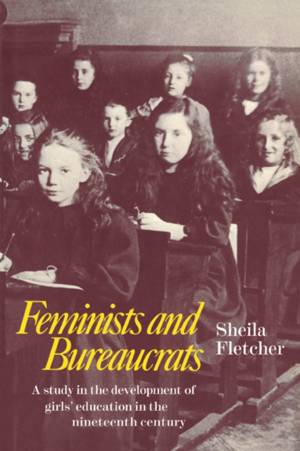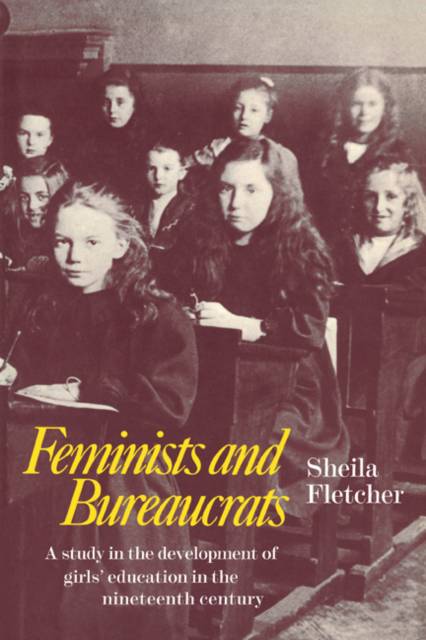
Bedankt voor het vertrouwen het afgelopen jaar! Om jou te bedanken bieden we GRATIS verzending (in België) aan op alles gedurende de hele maand januari.
- Afhalen na 1 uur in een winkel met voorraad
- In januari gratis thuislevering in België
- Ruim aanbod met 7 miljoen producten
Bedankt voor het vertrouwen het afgelopen jaar! Om jou te bedanken bieden we GRATIS verzending (in België) aan op alles gedurende de hele maand januari.
- Afhalen na 1 uur in een winkel met voorraad
- In januari gratis thuislevering in België
- Ruim aanbod met 7 miljoen producten
Zoeken
Feminists and Bureaucrats
A Study in the Development of Girls' Education in the Nineteenth Century
Sheila Fletcher
Paperback | Engels
€ 60,95
+ 121 punten
Uitvoering
Omschrijving
A radical measure, the Endowed Schools Act of 1869, empowered Commissioners to prise endowment from the old grammar schools and to set up, for the first time, grammar schools for girls. Sheila Fletcher shows how, in practice, such attempts met determined opposition and argues that what was actually secured for girls depended largely on the zeal and persistence of the civil servants administering the Act. The first of these, the Endowed Schools Commissioners, presided over by Gladstone's friend and relative Lord Lyttelton, were staunch supporters of Women's education, but zeal proved their undoing. In 1874 they were dismissed by the Conservatives and the working of the Act was placed in the 'safe' hands of the Charity Commissioners. Feminist concern that girls would suffer from this changeover proved well founded; their share in endowments fell sharply in the reign of the Charity Commissioners which lasted until the end of the century. Indeed, the contrast between the two Commissions highlights the extent to which progress in an area dear to the heart of the women's movement was determined by administrators.
Specificaties
Betrokkenen
- Auteur(s):
- Uitgeverij:
Inhoud
- Aantal bladzijden:
- 264
- Taal:
- Engels
Eigenschappen
- Productcode (EAN):
- 9780521080484
- Verschijningsdatum:
- 25/08/2008
- Uitvoering:
- Paperback
- Formaat:
- Trade paperback (VS)
- Afmetingen:
- 152 mm x 229 mm
- Gewicht:
- 390 g

Alleen bij Standaard Boekhandel
+ 121 punten op je klantenkaart van Standaard Boekhandel
Beoordelingen
We publiceren alleen reviews die voldoen aan de voorwaarden voor reviews. Bekijk onze voorwaarden voor reviews.









